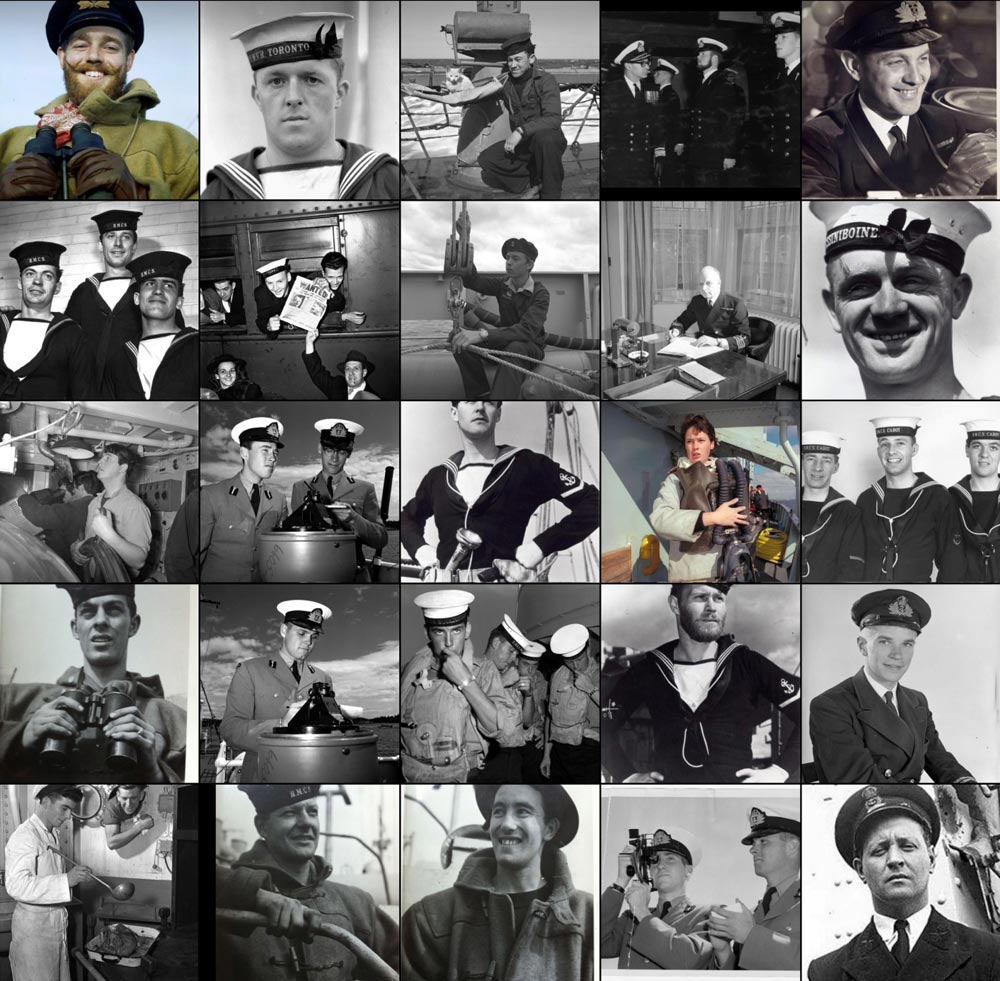
Stag Special
More than 1,700 naval reservists died in service to Canada during the Second World War.
To honour their sacrifice, an online Virtual Cenotaph has been created to repatriate the lives of these sailors back to the cities, towns and villages where they grew up and began their naval service.
In 2023, the Royal Canadian Navy (RCN) will mark the 100th anniversary of the Naval Reserve, offering an opportune time to recognize these “citizen sailors,” the nickname given to those who joined the war effort as members of the Royal Canadian Naval Volunteer Reserve, the Royal Canadian Naval Reserve and the Women’s Royal Canadian Naval Service.
The inspiration for the Citizen Sailors Virtual Cenotaph came from Capt(N) (Ret’d) Kim Kubeck, and the project is supported in part by the University Naval Training Division (UNTD) Association and a core team of dedicated volunteers.
Capt(N) Kubeck retired from the RCN in 2013 after 32 years of service with Canada’s Naval Reserve. After working with the Dutch branch of the Royal Canadian Legion on the Faces to Graves project — a search for information about Canadian soldiers buried at the Groesbeek Canadian War Cemetery in The Netherlands — she saw an opportunity to honour the memory of Canada’s naval reservists.
“When I started out learning some of the stories about these sailors, it struck me personally,” says Capt(N) Kubeck. “Faces to Graves showed me what the stories mean to so many people and how they can be shared.”
The Citizen Sailors Virtual Cenotaph hopes to share some 35 defined data fields on each sailor which will be searchable, but also unique stories about who these people were as discovered by the researchers working on each sailor’s history.
“By telling the story about where they were born, where they grew up, went to school, worked, loved and more, we can really paint a vivid picture of the lives these sailors led and by extension, how their ultimate sacrifice affected their family, friends, co-workers and shipmates,” says Capt(N) Kubeck.
For members of the UNTD, who are all former Naval Reserve officers, the Citizen Sailors Virtual Cenotaph aligns perfectly with their mandate.
“The Association has a continuing interest in the RCN and in particular in Naval Reserve officer training, past, present and future,” says Ross Connell, whose 15 year of naval service began when he joined UNTD in 1960 at Her Majesty’s Canadian Ship Star, the Naval Reserve Division in Hamilton, Ont.
“This is our contribution to the Naval Reserve Centennial,” adds Connell, “and we feel so honoured to help collect and share these amazing stories.”
With Library and Archives Canada opening access to the service files of Canadian war dead, there is an opportunity to explore and then tell these individual stories.
“Everyone who served in the Naval Reserve has an incredible story to tell, but for those who died in the war, we owe them the chance to live on in a way all Canadians can remember,” says Capt(N) Kubeck.
The Cenotaph project is relying on people to help bring it to life. Volunteer researchers from across the country are coming together, and more are needed, to uncover the stories about these sailors.
To make it easier, Capt(N) Kubeck created templates for the researchers and provides several online tools. There is also an online community for researchers where they can chat, share and learn.
“You don’t need any experience, military, investigative or otherwise to research one of these sailors,” she says. “Anyone willing to give a few hours of their time can help add a story to the Cenotaph.”
Typical researchers come from the sailor’s home town, are a family member or relative, are fans of the Navy, or are veterans or currently serving reservists from one of the 24 Naval Reserve Divisions across Canada.
“We are hoping to get this information in the hands of the Naval Reserve across Canada so that it is never forgotten,” explains Capt(N) Kubeck. “We are in a unique time to ensure the wealth of knowledge that exists about these men and women is tapped into, collected and shared in a truly meaningful way. These ordinary Canadians did something that was truly extraordinary and we should never forget.”
To date, the stories for 240 sailors have been assigned or completed.
You can learn more about the project or get information on becoming a researcher by visiting the UNTD website at https://untd.org/csvc-home/

